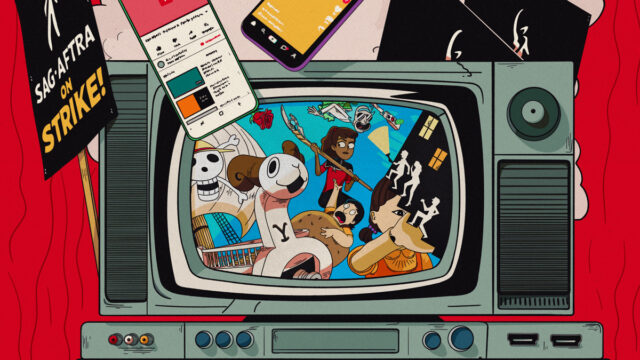Fine-tune your media, marketing and technology strategies at the Convergent TV Summit on October 25 with expert insights and strategies from the pros. Register now to save 35% on your pass.
After being on strike since May 2, Hollywood writers have a contract to return to work.
Following 5 days of negotiations the Writers Guild of America (WGA) and the Alliance of Motion Picture and Television Producers(AMPTP) released a surprising joint statement late last week that progress was being made. Sunday night came the news that a deal had been reached.
“What we have won in this contract — most particularly, everything we have gained since May 2nd — is due to the willingness of this membership to exercise its power, to demonstrate its solidarity, to walk side-by-side, to endure the pain and uncertainty of the past 146 days,” a WGA rep wrote in a note to members.
The impasse focused on issues such as pay, the size of writers’ rooms, AI and royalties and residuals. The AMPTP and the WGA have frequently been at odds, often jostling in the media. The recent talks, which included studio heads including Disney CEO Bob Iger and Warner Bros. Discovery CEO David Zaslav, had both sides looking to make a deal.
Guild members will still need to vote to accept the deal, which includes most of the demands—including increased royalty payments for streaming content, and protections against AI. Final details will not be released for several days.
Not long after the Writers went on strike, the actors’ main union, the Screen Actors Guild of America, joined the WGA on the picket line. Negotiations between actors and producers are still ongoing.
How we got here
Talks resumed Wednesday between the WGA and the studios following nearly a month of silence. Conversations had been ongoing since then.
Following Hollywood’s strikes, the entertainment industry screeched to a halt, with actors and writers refraining from promoting their work and projects continually being pushed. Several movies were moved to 2024 and major productions, including the Emmys, were delayed for months.
The lack of new scripted projects also wreaked havoc on fall TV schedules, with several networks making last-minute changes, leaning into reality programming and repackaging existing cable shows, such as Yellowstone, by giving them broadcast debuts. Meanwhile, the programs that tried to come back without writers, including talk shows hosted by Bill Maher and Drew Barrymore, were ultimately delayed again after receiving the ire of picketers and backlash online.


